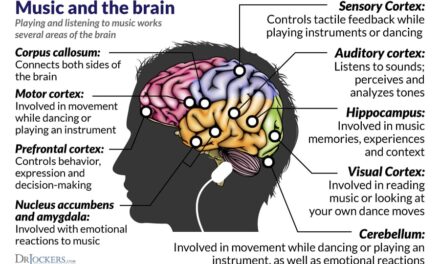Introduction
Attention Deficit Hyperactivity Disorder (ADHD) is a neurodevelopmental disorder that affects both children and adults. In Australia, it is estimated that around 7% of children and 5% of adults have ADHD. However, despite its prevalence, there is still a significant stigma surrounding ADHD, which can make it challenging for parents and carers to navigate the complexities of raising a child with ADHD. It is crucial to address this stigma and provide support for parents and carers to ensure the well-being and success of individuals with ADHD.
Understanding the Stigma Surrounding ADHD in Australia
There are many misconceptions about ADHD that contribute to the stigma surrounding the disorder. One common misconception is that ADHD is simply a result of poor parenting or a lack of discipline. However, ADHD is a neurobiological condition that affects the brain’s executive functions, such as attention, impulse control, and organization. It is not caused by external factors or parenting style.
The impact of stigma on individuals with ADHD and their families can be significant. Children with ADHD may face discrimination and judgment from their peers, teachers, and even family members. This can lead to feelings of shame, low self-esteem, and social isolation. Parents and carers may also experience blame and judgment, which can add to their stress and feelings of inadequacy.
The Challenges Faced by Parents and Carers of Children with ADHD
Raising a child with ADHD comes with unique challenges that can be overwhelming for parents and carers. One of the main challenges is managing the symptoms and behaviors associated with ADHD. Children with ADHD may struggle with impulsivity, hyperactivity, and inattention, which can make it difficult for them to follow rules, complete tasks, and maintain relationships. This can lead to frustration and conflict within the family.
Navigating the education system can also be a challenge for parents and carers. Children with ADHD may require accommodations and support in the classroom to help them succeed academically. However, advocating for these accommodations and ensuring that they are implemented can be a complex and time-consuming process. Parents and carers may need to attend meetings, provide documentation, and communicate with teachers and school administrators to ensure their child’s needs are met.
Coping with the social and emotional challenges of ADHD can also be difficult for parents and carers. Children with ADHD may struggle with social skills, making it challenging for them to form and maintain friendships. They may also experience emotional dysregulation, leading to frequent mood swings and meltdowns. Supporting a child through these challenges can be emotionally draining and may require additional resources and strategies.
The Benefits of Joining an ADHD Support Group
Joining an ADHD support group can provide parents and carers with a wealth of benefits. Firstly, support groups offer access to information and resources about ADHD. They provide a platform for sharing experiences, strategies, and tips for managing ADHD symptoms and behaviors. Support groups often invite guest speakers, such as psychologists or educators, to provide expert advice and guidance.
Connection with others who understand is another significant benefit of joining an ADHD support group. Parents and carers can share their experiences, frustrations, and successes with others who have similar challenges. This sense of community can be incredibly validating and can help reduce feelings of isolation and self-doubt.
Emotional support is also a crucial aspect of ADHD support groups. Parents and carers can find solace in knowing that they are not alone in their struggles. They can receive empathy, understanding, and encouragement from others who have walked a similar path. This emotional support can be invaluable in helping parents and carers navigate the challenges of raising a child with ADHD.
Creating a Community of Support for Parents and Carers
Building a support network is essential for parents and carers of children with ADHD. Connecting with other parents and carers who understand the unique challenges of ADHD can provide a sense of belonging and validation. There are several strategies for connecting with others and building a community of support.
One strategy is to reach out to local organizations or support groups that specialize in ADHD. These groups often hold regular meetings or events where parents and carers can connect with others facing similar challenges. Online communities and forums can also be a valuable resource for connecting with others and accessing support and information.
Another strategy is to connect with other parents and carers through school or community networks. Many schools have parent support groups or committees that focus on supporting families of children with special needs. Joining these groups can provide an opportunity to meet other parents and carers and share experiences and resources.
Empowering Parents and Carers with Information and Resources
Empowering parents and carers with information and resources is crucial for effectively managing ADHD. There are numerous resources available that can provide valuable information and guidance.
One resource is the ADHD Australia website, which offers a wealth of information about ADHD, including symptoms, diagnosis, treatment options, and strategies for managing symptoms. The website also provides links to other reputable sources of information, such as research articles and books.
Another resource is the Parenting Children with ADHD program, which is an evidence-based program designed to help parents and carers develop strategies for managing ADHD symptoms and behaviors. The program is available online and covers topics such as behavior management, communication, and self-care.
It is important to ensure that the information and resources accessed are reliable and evidence-based. When searching for information, it is recommended to look for reputable sources such as government websites, academic journals, and organizations specializing in ADHD.
Navigating the Education System with ADHD: How Support Groups Can Help
Navigating the education system can be particularly challenging for children with ADHD and their parents and carers. Support groups can play a crucial role in advocating for accommodations and support within the school system.
Children with ADHD may require accommodations such as extra time on tests, preferential seating, or additional support from a learning support teacher. However, obtaining these accommodations can be a complex process that requires documentation, meetings, and ongoing communication with teachers and school administrators.
Support groups can provide parents and carers with guidance and support throughout this process. They can offer advice on how to effectively communicate with teachers and administrators, provide resources for understanding the rights and entitlements of children with ADHD, and offer strategies for advocating for accommodations.
Overcoming the Isolation of Parenting a Child with ADHD
Parenting a child with ADHD can be isolating, as the challenges and behaviors associated with the disorder can be difficult for others to understand. This isolation can have a significant impact on the mental health and well-being of parents and carers.
Feeling isolated can lead to increased stress, anxiety, and depression. It can also contribute to feelings of self-doubt and inadequacy as parents and carers may question their ability to effectively manage their child’s ADHD. It is crucial for parents and carers to find ways to overcome this isolation and build a support network.
One strategy is to reach out to friends and family members who can provide emotional support and understanding. Educating loved ones about ADHD and its challenges can help them better understand and support parents and carers.
Another strategy is to seek out support groups or online communities where parents and carers can connect with others facing similar challenges. These groups can provide a sense of belonging and validation, reducing feelings of isolation and providing a platform for sharing experiences and resources.
Addressing the Mental Health Needs of Parents and Carers
Addressing the mental health needs of parents and carers is crucial for their well-being and ability to effectively support their child with ADHD. Parenting a child with ADHD can be incredibly demanding and stressful, and it is essential for parents and carers to prioritize self-care.
Self-care can take many forms, including engaging in activities that bring joy and relaxation, seeking professional support through therapy or counseling, and practicing stress management techniques such as mindfulness or exercise. It is important for parents and carers to recognize their own needs and to seek support when necessary.
There are also resources available specifically for addressing the mental health needs of parents and carers. For example, the Carers Australia website provides information and resources for carers, including support services and counseling options. It is important for parents and carers to access these resources and prioritize their mental health.
Advocating for ADHD Awareness and Acceptance in Australia
Advocacy plays a crucial role in reducing the stigma surrounding ADHD and improving support for individuals with the disorder. By advocating for ADHD awareness and acceptance, parents and carers can help create a more inclusive and supportive society for their children.
There are several ways to get involved in advocacy efforts. One way is to join or support organizations that focus on ADHD advocacy, such as ADHD Australia or local ADHD support groups. These organizations often engage in awareness campaigns, lobbying efforts, and educational initiatives to promote understanding and acceptance of ADHD.
Another way to advocate for ADHD is to share personal experiences and stories. By speaking openly about their experiences with ADHD, parents and carers can help educate others and challenge misconceptions. Sharing stories through social media, blogs, or local media outlets can help raise awareness and promote understanding.
Finding the Right ADHD Support Group for You and Your Family
When seeking out an ADHD support group, it is important to consider several factors to ensure that it is the right fit for you and your family. Firstly, consider the format of the support group. Some groups may meet in person, while others may be online. Consider which format would be most convenient and accessible for you.
Secondly, consider the focus and goals of the support group. Some groups may focus on providing emotional support and validation, while others may focus on providing information and resources. Think about what you are looking for in a support group and choose one that aligns with your needs and goals.
Lastly, consider the location and accessibility of the support group. If you prefer an in-person group, consider whether there are any groups in your local area. If you prefer an online group, consider whether the group has a user-friendly platform and whether it is open to individuals from different locations.
Conclusion
In conclusion, addressing the stigma and challenges faced by parents and carers of children with ADHD is crucial for the well-being and success of individuals with the disorder. Joining an ADHD support group can provide parents and carers with access to information, connection with others who understand, and emotional support and validation. Building a community of support, empowering parents and carers with information and resources, and advocating for ADHD awareness and acceptance are all important steps in creating a more inclusive and supportive society for individuals with ADHD in Australia. It is essential for parents and carers to seek out support and resources to ensure the best possible outcomes for their children with ADHD.
Find out how Torongo Therapyplus can help you with your needs. Get in touch with us at smile@torongo.life, or call us on 02 8809 9965.































